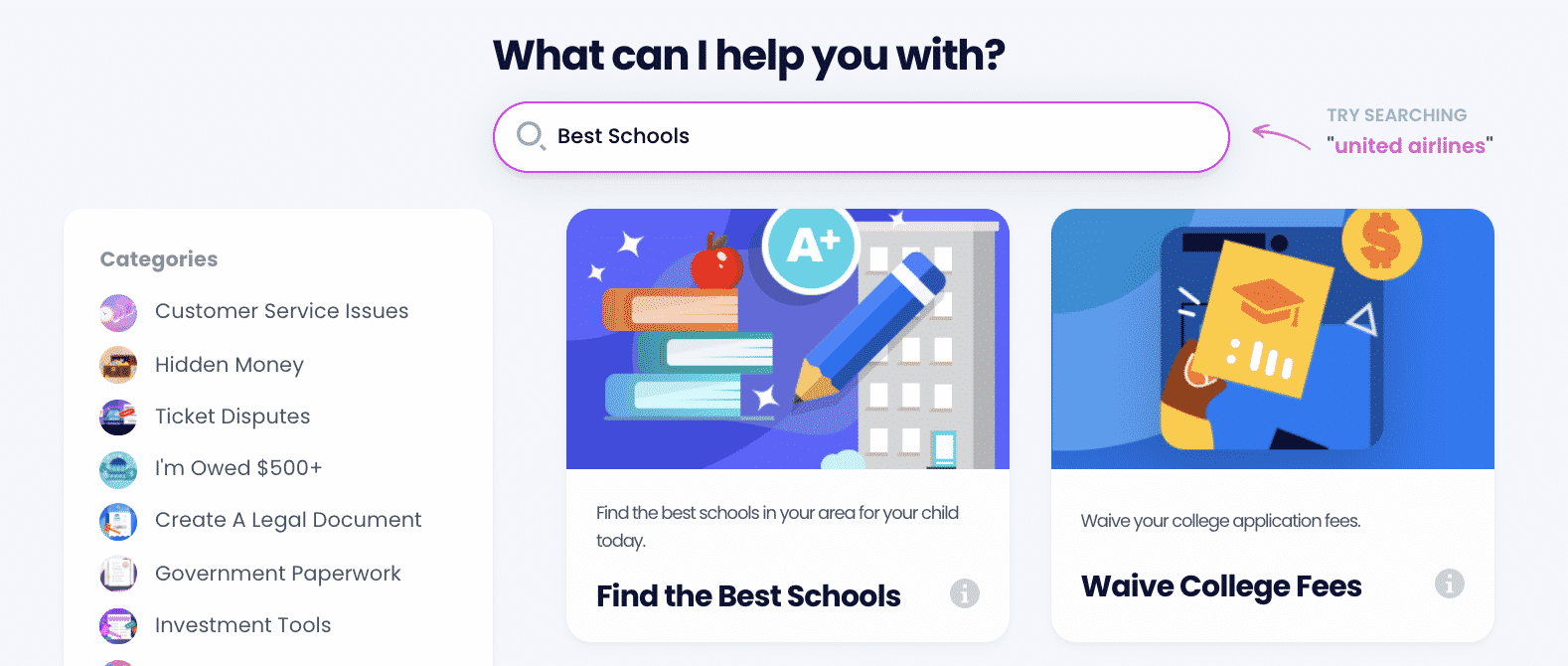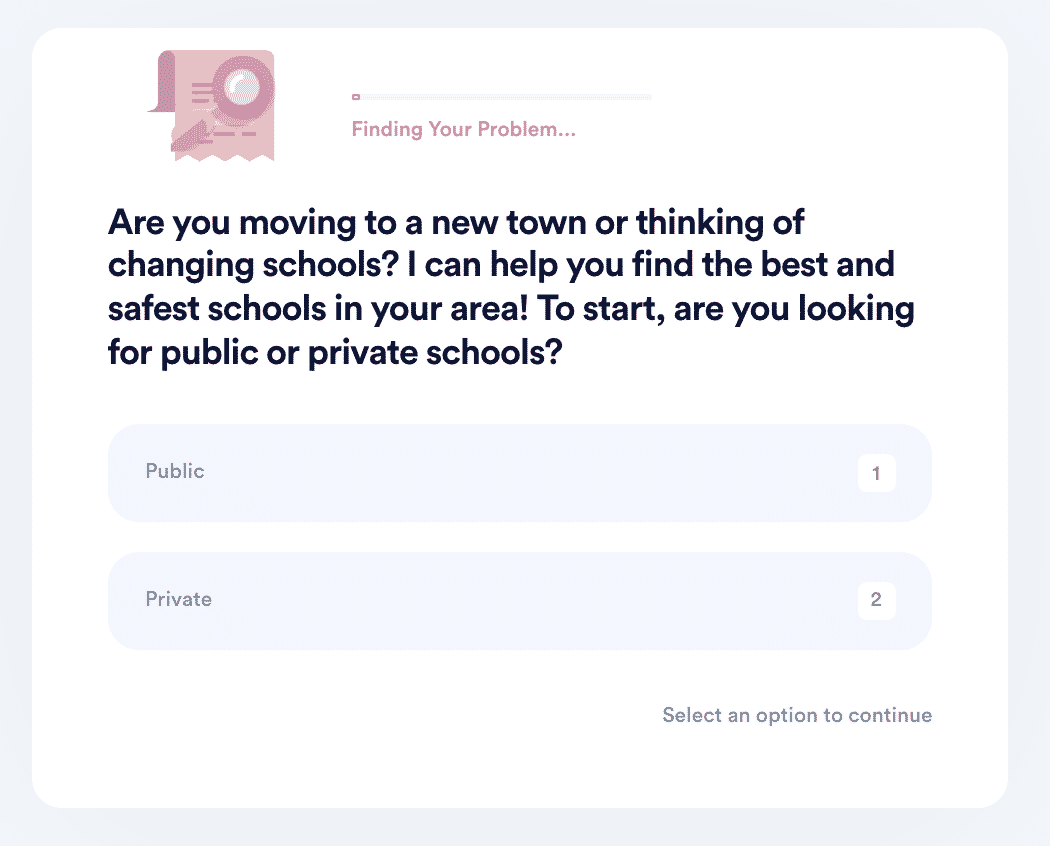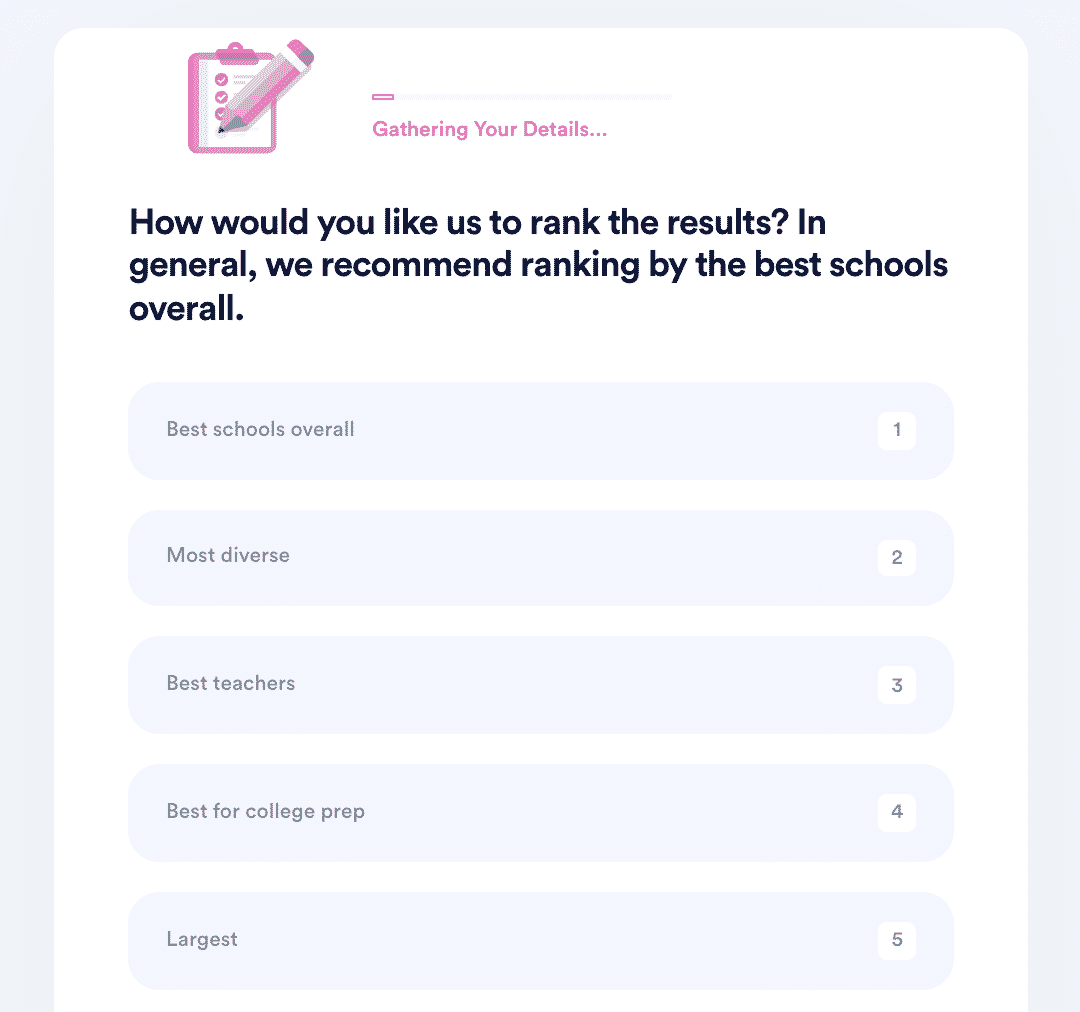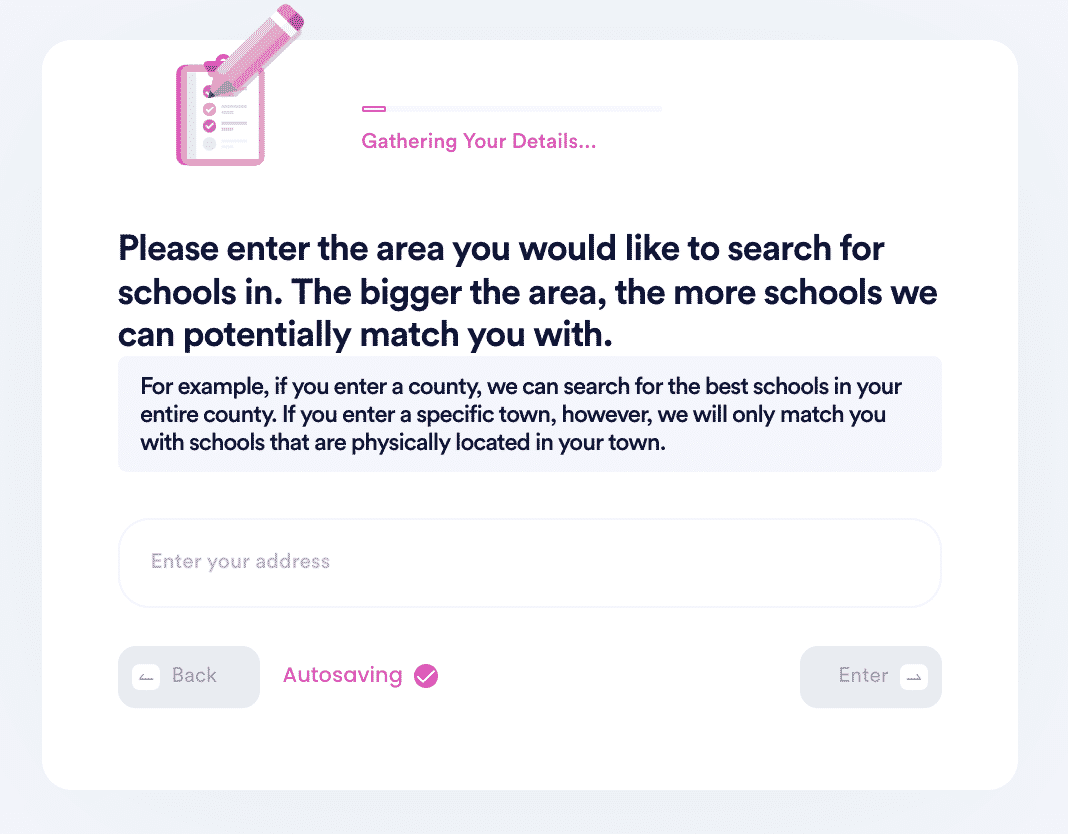Finding the Best High Schools for Students With Dyslexia
If your teen has dyslexia (also referred to as a learning disability or a learning difference), then it's important for them to study in an environment that will enhance their ability to learn rather than making them feel like they don't fit in. In other words, it may be necessary to send them to a .
However, there are a number of things to be considered before you can decide on . One thing you might need to consider is exactly how difficult your child finds it to learn at a regular public school. Plus, you'll also need to know more about the school itself, such as:
- What type of training do the teachers have?
- What's the average class size?
- What is the school's assessment policy?
- What is the school's approach to marking?
It can be difficult to evaluate all the high schools for students with dyslexia in your area or state. But DoNotPay can simplify the process for you. All you have to do is answer a few questions about what's important to you in a school, and DoNotPay will help you to find the best schools for your child in any area you choose.
What Do You Need to Know About Dyslexia?
Some parents know from the time that their kid's pretty young that s/he has dyslexia, but others only find out as the child gets older. If you've only just realized that the reason why your child was struggling with the school was dyslexia, then here's what you need to know:
- Children who are dyslexic don't break language down into its component sounds like everyone else, and this leads to problems with reading, writing, and spelling.
- Dyslexia affects each child differently. Some may only seem mildly affected in terms of their reading and writing, while others may find these tasks a lot more difficult.
- Dyslexic children are not less intelligent than other children. They are just not neurotypical.
- When your child has dyslexia, s/he will need your emotional support as well as the support of counselors, teachers, friends, etc.
What Kind of Environment Will the School Provide?
There are many schools that specialize in working with students who have dyslexia. But before you go ahead and enroll your child in a certain school, you might want to gauge the school's environment first. This includes the people in the environment—the teachers and students—as well as the physical environment itself.
What Qualifications Do The Teachers Have?
Are the teachers at that school trained to work with students who have dyslexia? Will they be able to empathize with your teen and understand their way of learning? A good teacher will know to use a dyslexia-friendly font or email assignments directly to the student's laptop. They won't ask the teen to speak out loud in class if the teen isn't comfortable doing so.
Are There Other Dyslexic Students at the School?
If the school is only for dyslexic students, then your child will feel like s/he is not the only one with that learning difference. This might help him/her fit in at that school.
How Is the School’s Physical Environment?
The actual physical environment of the school is also important. Since children with dyslexia sometimes have attention-related issues as well, you need to make sure that the school's environment captures their attention without being distracting. It's also important for students to have access to computers as it is easier for them to type rather than handwriting their notes and homework.
How Good Are the Teaching Methods at That School?
In addition to the people surrounding your teen and the physical environment at the school, it's also important to consider the types of teaching methods used at the school. So you might need to ask the following questions:
-
How Large Are the Classes?
This is important in any school but even more so in a school for students with dyslexia where each student might require special attention so that they can learn at their own pace. Small class size is always better because it enables the teacher to give special attention to each student and make sure that they understand the topic at hand.
-
How Do the School Assess Students?
Often, dyslexic students don't fare that well when it comes to written tests and written assignments. So certain schools allow dyslexic students to send an audio recording instead of writing down answers. Dyslexic students may also work better when they are allowed to type answers rather than handwriting them. So you should look up whether the school in question has this type of assessment policy.
-
How Flexible Is the School Curriculum?
Some dyslexic students may need to spend more time learning certain things until they understand them completely, but others may be gifted and may learn things quickly. The school you choose needs to be flexible so that it allows your child as much time as s/he needs to learn.
-
How Does the School Teach Literacy Skills?
There are different, non-traditional ways of teaching dyslexic students how to read, such as having them draw letters in the air or in the sand. This is referred to as multi-sensory learning and might make it easier for your child to pick up literacy skills.
Finding Schools for Dyslexic Students via DoNotPay
As you can see, there are many factors that go into picking the right school for your child, and it can be time-consuming to examine a number of schools in such great detail. It might be easier to use DoNotPay, enter the things that are important to you and generate a list of schools that fit the bill.
If you want to find the best schools in your area but don't know where to start, DoNotPay has you covered in four easy steps:
- Go to the Best Schools Search product on DoNotPay.

- Let us guide you through the different priorities you can filter by, including whether you're looking for a private school vs. public school, your ideal student-to-teacher ratio, and what grade level you are looking for.

- Tell us how you want us to rank the results (by what's most important to you!) Some examples include, best schools overall, most diverse, best teachers, etc.

- Enter the search area you want to search in for. The wider the area, the more schools we can match you with.

Why Use DoNotPay
| Fast | You don't have to spend hours trying to solve the issue. |
| Easy | You don't have to struggle to fill out tedious forms or keep track of all the steps involved in solving your problem. |
| Successful | You can rest assured knowing we'll make the best case for you. |
Using DoNotPay to Find Other Specialized Schools
As you can see, DoNotPay makes it very easy to find the right school for a dyslexic teen. However, you can also use DoNotPay to generate a list of schools that specialize in other things.
- Find the best schools for kids with autism.
- Find the best schools for kids with special needs.
- Find the best schools for gifted children.
- Find the best schools for troubled kids.
- Find the best schools for your child.
No matter what kind of needs your child might have, you can use DoNotPay to find the right school for them. Rather than examining the offerings at dozens of schools, a process in which you might miss something, you can use DoNotPay to do the preliminary screening for you. This will save you a lot of time and simplify your life as well as contribute to the well-being of your child.


